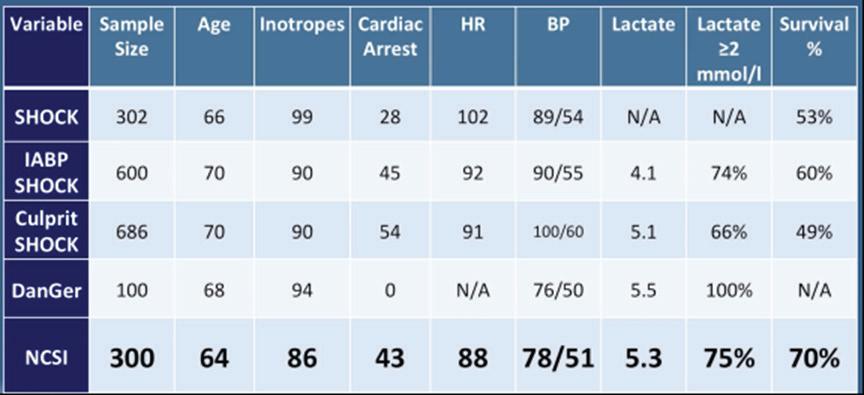
3 minute read
A Successful Industry Academic Collaboration: A Panel Discussion
Figure 1: Congestion Profiles as Indicators of Mortality and Cardiogenic Shock Severity
60
Advertisement
50
Mortality (%)
40
30
20
10
0
EuV LV RV BiV
*p<0.05; ***p<0.001. BiV = biventricular; EuV = euvolemic; LV = left ventricular; RV = right ventricular. Another goal of this symposium is to advance the current understanding of the role of right ventricular unloading in various clinical settings. Consistent with prior studies, mortality increases markedly in cardiogenic shock patients once central venous pressure or right atrial pressure increases, whether in isolation or in combination with elevations to pulmonary capillary wedge pressure (Figure 1).2 Dr Burkhoff stated that such correlations are also true in patients presenting with acute MI shock and those with acute decompensated heart failure-related shock. Prior A-CURE symposia primarily focused on left ventricular unloading, but a large part of future efforts is to better understand the indications, timing and role of right ventricular support in such patients.
Dr Burkhoff concluded by encouraging virtual attendance at this year’s nine symposium talks and six additional talks selected from the submitted abstracts, as well as in-person attendance at the 6th Annual A-CURE symposium next year.
1. Uriel N, Sayer G, Annamalai S, et al. Mechanical unloading in heart failure. J Am Coll Cardiol 2018; 72:569–80. https://doi: 10.1016/j.jacc.2018.05.038; PMID: 30056830. 2. Thayer K, Zweck E, Ayouty M, et al. Invasive hemodynamic assessment and classification of in-hospital mortality risk among patients with cardiogenic shock. Circ Heart Fail 2020;13:e007099. https://doi:10.1161/CIRCHEARTFAILURE.120.007099; PMID: 32900234.
Moderated by Jerry Curran, PhD1 Presented by Elazer Edelman, MD, PhD,2,3 Steven Keller, MD, PhD,3 Christian Moyer, PhD,1 Ahmad El Katerji, PhD1 and Noam Josephy, MD1
1. Abiomed, Danvers, MA, US; 2. Massachusetts Institute of Technology, Boston, MA, US; 3. Brigham and Women’s Hospital, Boston, MA, US
Dr Elazer Edelman is Professor in Medical Engineering and Science at Massachusetts Institute of Technology and Professor of Medicine at Harvard Medical School and Brigham and Women’s Hospital. Dr Steven Keller is Medical Director of ECMO at Brigham and Women’s Hospital and an Instructor of Medicine at Harvard Medical School. Dr Jerry Curran, Dr Christian Moyer, Dr Ahmad El Katerji and Dr Noam Josephy are employees of Abiomed.
The ongoing collaboration between Massachusetts Institute of Technology (MIT) and Abiomed aims to elucidate the bidirectional impact of Abiomed’s Impella transvalvular mechanical support pump on cardiac function, as well as the impact of end-organ function on the behaviour of Impella. Dr Edelman described a linear format of patient care prior to the collaboration, in which physicians provided mechanical support without any detailed feedback on performance. Impella is a combined sensor and pump, providing left ventricular (LV) mechanical unloading while simultaneously querying patient state. This bidirectional feedback enables titration of support to optimise care in cardiogenic shock patients, in contrast to the intermittent monitoring approach provided by the current standard of care.
Collaboration between MIT and Abiomed began in 2015 to further understand how the Impella device impacts cardiovascular physiology and how end-organ function impacts device performance in vivo. Dr Josephy spurred Abiomed engineers to include haemodynamic information on the device display after recognising similarities in appearance between an LV pressure tracing and Impella’s motor current signal. Abiomed and MIT then formulated a goal to enable Impella to provide both haemodynamic support and meaningful patient-specific physiological information to the team managing the patient. This academic-industry partnership set out to fill the information void that often exists between devices and patients.
Early studies by Dr Edelman identified LV end-diastolic pressure (LVEDP) as a key cardiac marker of the interaction between patient physiology and Impella device function. Research teams lead by Dr El Katerji and Dr Keller subsequently developed algorithms for Impella to calculate cardiac output and measures of vascular impedance. Cardiac output is determined by novel calculations not used on any device approved by the Food and Drug Administration (FDA). Abiomed is currently working with the FDA to establish the first regulatory submission of this sensor type. Patient-specific measures of cardiac output and LVEDP make the Impella attractive for clinical studies, and device commercialisation efforts are currently underway.
Identifying a common goal of improving patient outcomes is key to the success of this industry and academic collaboration. Starting the collaboration with a shared goal in mind was fundamental to building a strong, trusting relationship. Weekly meetings between Abiomed and MIT





